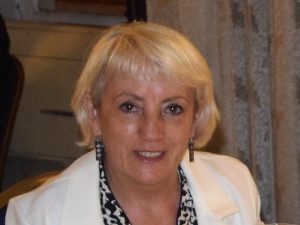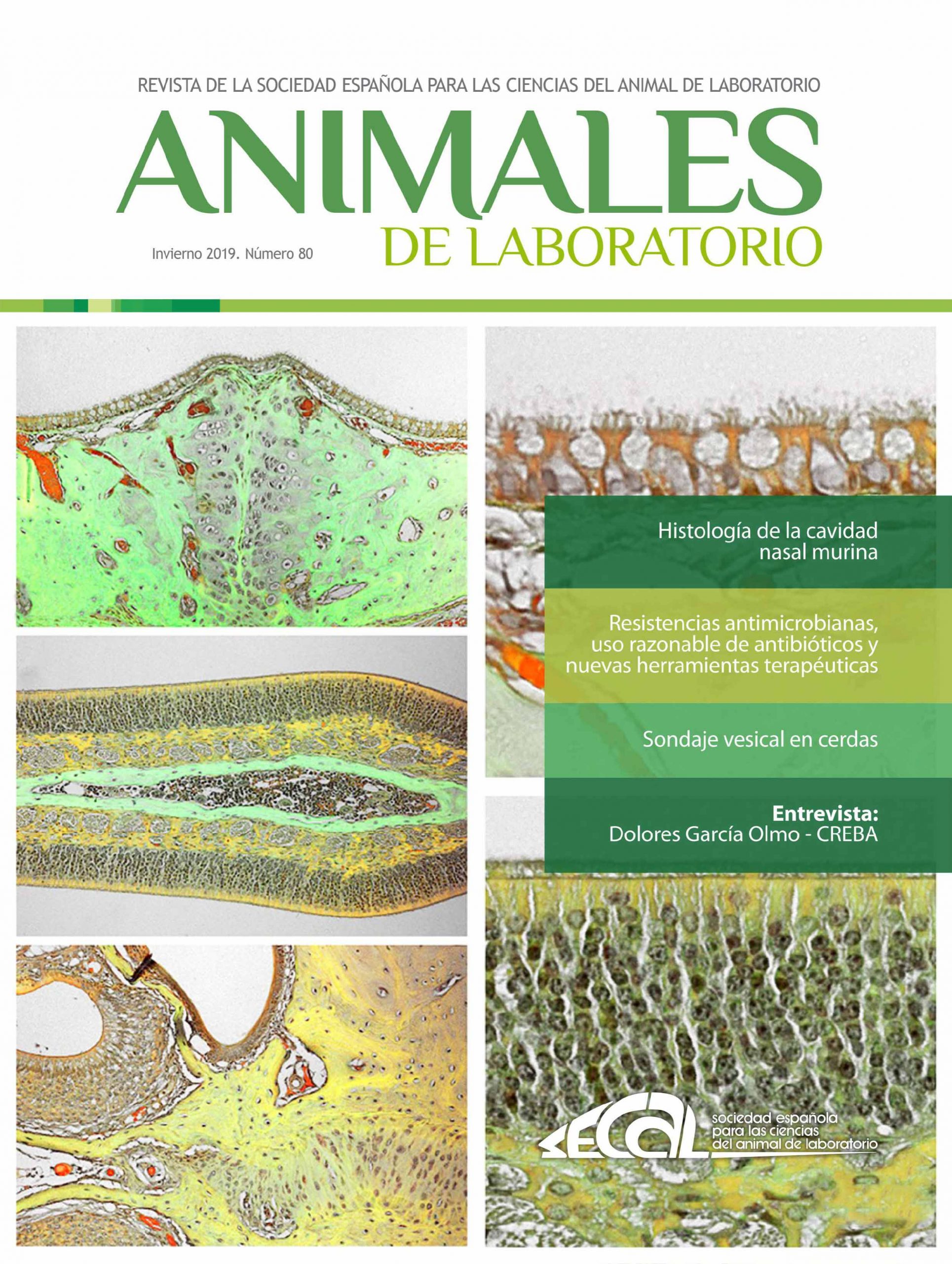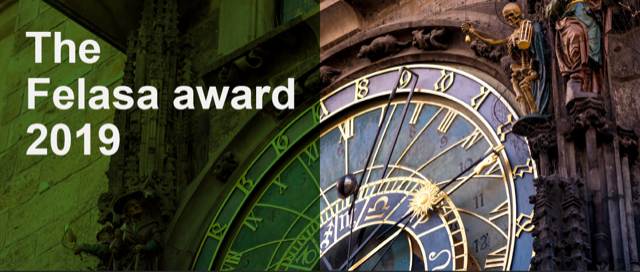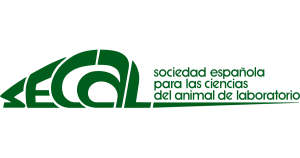Noticias
Reportaje – Área investigación biomédica con modelos animales del Museo Elder
Como muchos recordaréis, coincidiendo con la celebración del XIV Congreso Nacional de la SECAL realizado en las Palmas de Gran Canaria en junio del 2017, se celebró la inauguración del área permanente dedicada a la «investigación biomédica con modelos animales» del Museo Elder de la Ciencia y Tecnología de Las Palmas de Gran Canaria.
Un proyecto didáctico e innovador del Museo Elder que pretende ser un marco de divulgación y transparencia de la experimentación animal.
En este proyecto colaboraron SECAL, el Hospital de Gran Canaria Dr. Negrín, Biosis S.L. y el Parc de Recerca Biomédica de Barcelona (PRBB), aunque debemos reconocer que fue posible gracias a la implicación personal tanto de José Gilberto Moreno (Director del Museo) como de Jose Luis Martín Barrasa (Veterinario Responsable del H.U.G.C. Dr. Negrín, secalero y Presidente del XIV Congreso).
La semana pasada y dentro del programa Canarias 2.0 de la Televisión Autonómica de Canarias TVC, se emitió un pequeño reportaje dedicado al área de biosalud y experimentación animal del Museo Elder, y que podéis visualizar:
FELASA concede el Award 2019 al Dr. Werner Nicklas
Dear FELASA BoM members,
It is a great pleasure and honour to inform you that Dr. Werner Nicklas has been chosen by the Executive Committee for the FELASA Award 2019.
The FELASA Executive Committee recognises the outstanding achievements and extraordinary dedication of Werner Nicklas within the field of Laboratory Animal Science and for the animals used in research.
The awardee will give the FELASA award lecture during the FELASA 2019 Congress in Prague. His talk and the award presentation ceremony is scheduled for Wednesday 12thJune 2019 from 11:45 – 12.45.
More details regarding the scientific program you can find at http://www.felasa2019.eu/resource/felasa2019/files/FELASA-Preliminary-Programme.pdf
Looking forward to meeting you all in Prague!
Webinar gratuito sobre HAMELIN
 El artículo 41 del RD 53/2013, de 1 de febrero establece que «Los criadores, suministradores y usuarios comunicarán a los órganos competentes, en los plazos y forma que éstas establezcan, los datos necesarios para que se puedan cumplir las obligaciones establecidas en la normativa nacional y de la Unión Europea«.
El artículo 41 del RD 53/2013, de 1 de febrero establece que «Los criadores, suministradores y usuarios comunicarán a los órganos competentes, en los plazos y forma que éstas establezcan, los datos necesarios para que se puedan cumplir las obligaciones establecidas en la normativa nacional y de la Unión Europea«.
El Ministerio de Agricultura, Pesca y Alimentación, en 2014 desarrolló una aplicación informática denominada HAMELIN, para gestionar este flujo de datos. Una de las utilidades de HAMELIN es permitir que los usuarios de animales utilizados con fines científicos y docentes carguen la información en el sistema, y la envíen a la respectiva autoridad competente.
Desde SECAL, os ofrecemos este webinar con Pilar León del Ministerio de Agricultura, Pesca y Alimentación sobre el funcionamiento de HAMELIN, que incluye las dudas resueltas que han ido surgiendo estos primero años.
El webinar requiere registro previo gratuito en la plataforma de formación online NANOCURSOS.
Instrucciones para inscribirse: https://secal.es/wp-content-uploads-2019-01-inscripcion-seminario-pdf/
Acceso al webinar:
Fallece el Dr. Alberto Giraldez Dávila

Lamento informaros del fallecimiento de nuestro entrañable compañero y amigo Alberto Giraldez Dávila, socio nº 29 de la SECAL .
Siempre recordaremos al Dr. Giraldez y su legado tanto para la SECAL como para la historia de la experimentación animal.
Su hijo nos ha enviado un mensaje para compartir con todos los socios que hemos publicado en la L-SECAL.
Gracias Alberto por haber compartido tanto con nosotros. Te echaremos de menos.
Teresa Rodrigo
Presidenta de SECAL
Concedido a Patri Vergara el FELASA Anniversary Educational Award

La Junta de Gobierno de SECAL tiene el placer de informaros que se ha concedido el “FELASA Anniversary Award” en la categoría de “Educación” a nuestra socia y compañera Patri Vergara , un premio que reconoce su trayectoria en el desarrollo y organización de cursos y programas de enseñanza en el campo de la Ciencia del Animal de Laboratorio.
Courses and Teaching Program Organization
Patri Vergara co-organised the first Laboratory Animal Science Course in Spain in 1988 at the Universitat Autonoma de Barcelona (UAB). The objective of this 100 hour course was to provide LAS E&T to the personnel responsible for animal facilities in Spain and to facilitate recognition of their capacities by Spanish Competent Authorities. Indirectly, this first course facilitated the foundation of SECAL (November 1988) as founding members were either teachers or students of this first course.This course was discontinued in 1992 but in 1998 a new FELASA Category C course started at the UAB under her co-ordination. This course was FELASA accredited in 2003 (002/03) and later accredited for functions a+b+c+d (F002/03). This course is organised twice a year in both Spanish and English and since 2016 has included an on-line training component. To date, the number of scientists who have trained on this course is around 2,000.
In 2000, she planned and organised the Master in Laboratory Animal Science and Welfare at the UAB, a program following FELASA Category D guidelines which received FELASA accreditation in 2003 (004/03), currently recognised as FELASA Specialist (F004/03). The programme was planned as a modular course to be compatible with a full time job, facilitating access to the course for those already working in the field. The programme has always included international specialist teachers and it is considered as an international reference, particularly since it is given 100% in English. Currently, most colleagues responsible for animal facilities in Spain have followed this program, together with colleagues from Latin America and, since the programme is in English, from India, Rusia and nearly all EU countries. The programme is also approved by ICLAS for the ICLAS Veterinary scholarship.
In 2016, part of this program was presented for recognition by VetCEE (Veterinary Continuing Education in Europe) for Veterinarians in the form of a Certificate in Laboratory Animal Science and Medicine.
En 2013, Patri Vergara was requested by LASA-India and TANUVAS University in India to co-organise a Certificate Course in Laboratory Animal Science based on the FELASA Category C programme and EU Directive for functions a+b+c+d. This course obtained FELASA accreditation (F052/15), the first FELASA accredited course outside Europe. She still participates every year with an address to the students by Skype and keeps in close contact with the teaching staff at TANUVAS.
Contribution to FELASA’s aims on Education and Training
Patri Vergara was member of two working groups related to E&T: 1) to prepare the FELASA guidelines for Category B personnel and 2) to prepare the Guidelines for the FELASA E&T Accreditation (See references 3 and 4).
She was also a member of the E&T Accreditation Board since its start in 2003 and became Chair of the Board in 2004. Under her co-ordination there was a continuous increase in the number of FELASA accredited courses and the Board successfully adapted to the new personnel definition by Directive EU63/2010.
Contribution to Veterinary Education and Recognition
In 1998, Patri Vergara was accepted as Charter Diplomate for the creation of the European College of Laboratory Animal Medicine by the European Board of the Veterinary Specialisation. The college was approved in 2000 and she was member and Treasurer of the ECLAM council until 2007. During this period the Council approved the de-facto members of the college and initiated the examination procedure for candidates.
In relation to ECLAM, she currently runs one of the few ECLAM residency programs from which four new ECLAM diplomates have graduated.
In 2015, she was appointed by ECLAM to define for VetCEE the guidelines for Laboratory Animal Science and Medicine Certification.
In 2015 she designed a subject in LAS for undergraduates studying Veterinary Science at the UAB with the aim of providing basic knowledge for veterinarians to become Designated Veterinarian. This subject was accredited by FELASA in 2018 (F064/18).
Other E&T activities
Patri is also a member of the Education and Training Platform for Laboratory Animal Science (ETPLAS) representing course providers and Spain.
Participation in E&T Projects
Patri Vergara has participated as a scientific member in the following LAS projects financed by the EU with the objective of promoting E&T and/or implementing EU legislation:
- Laboratory Animal Science Welfare. Action B12. COST (EU). Spain Participant. 2004-2009.
- Preparatory Activities for post graduate training (EU and LA) in Animal Welfare and Experimentation. Red América Latina Formación en Bienestar y Experimentación Animal (ALFABEA); Funding Entity: European Union. Coordinador:J.M. Tur (Universitat Illes Balears); responsible at Universitat Autonoma de Barcelona: Vergara P.; 1997
- Harmonization and enhancement of training capacity in Laboratory Animal Science in Europe. Part II: Spain, Belgium and Ireland. Eurogroup for Animal Welfare y Federation of European Laboratory Animal Science Associatons. European Commission.; Coordinator of the project in Spain, 1996.
- Implementation and enforcement of EC directive 86/609 on animal experimentation in Portugal, Italy, Greece and Spain. Eurogroup for Animal Welfare. European Commission. Coordinator of the project in Spain, 1993.
List of publications in relation to E&T in LAS
1) Turner PV, Pekow C, Clark JM, Vergara P, Bayne K, White WJ, Kurosawa TM, Seok SH, Baneux P. Roles of the International Council for Laboratory Animal Science (ICLAS) and International Association of Colleges of Laboratory Animal Medicine (IACLAM) in the Global Organization and Support of 3Rs Advances in Laboratory Animal Science. J Am Assoc Lab Anim Sci. 2015 Mar;54(2):174-80. Erratum in: J Am Assoc Lab Anim Sci. 2015 Jul;54(4):352. PubMed PMID: 25836964; PubMed Central PMCID: PMC4382622.
2) Poirier GM, Bergmann C, Denais-Lalieve DG, Dontas IA, Dudoignon N, Ehall H, Fentener van Vlissingen JM, Fornasier M, Kalman R, Hansen A, Schueller S, Vergara P, Weilenmann R, Wilson J, Degryse AD. ESLAV/ECLAM/LAVA/EVERI recommendations for the roles, responsibilities and training of the laboratory animal veterinarian and the designated veterinarian under Directive 2010/63/EU. Lab Anim. 2015 Apr;49(2):89-99. doi: 10.1177/0023677214557717. Epub 2014 Nov 21. Erratum in: Lab Anim. 2015 Jul;49(3):263-4. PubMed PMID: 25416607.
3) Nevalainen Convenor T, Blom HJ, Guaitani A, Hardy P, Howard BR, Vergara P. FELASA recommendations for the accreditation of laboratory animal science education and training. Lab Anim. 2002 Oct;36(4):373-7. PubMed PMID: 12396280.
4) Nevalainen T, Dontas I, Forslid A, Howard BR, Klusa V, Käsermann HP, Melloni E, Nebendahl K, Stafleu FR, Vergara P, Verstegen J; FELASA. FELASA recommendations for the education and training of persons carrying out animal experiments (Category B). Report of the Federation of European Laboratory Animal Science Associations Working Group on Education of Persons Carrying out Animal Experiments (Category B) accepted by the FELASA Board of Management. Lab Anim. 2000 Jul;34(3):229-35. PubMed PMID: 11037115.










